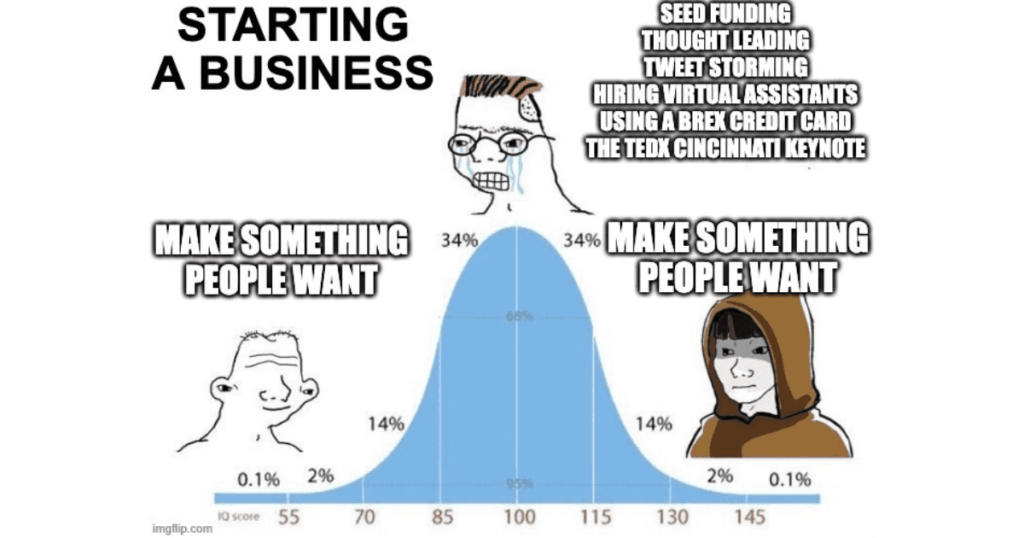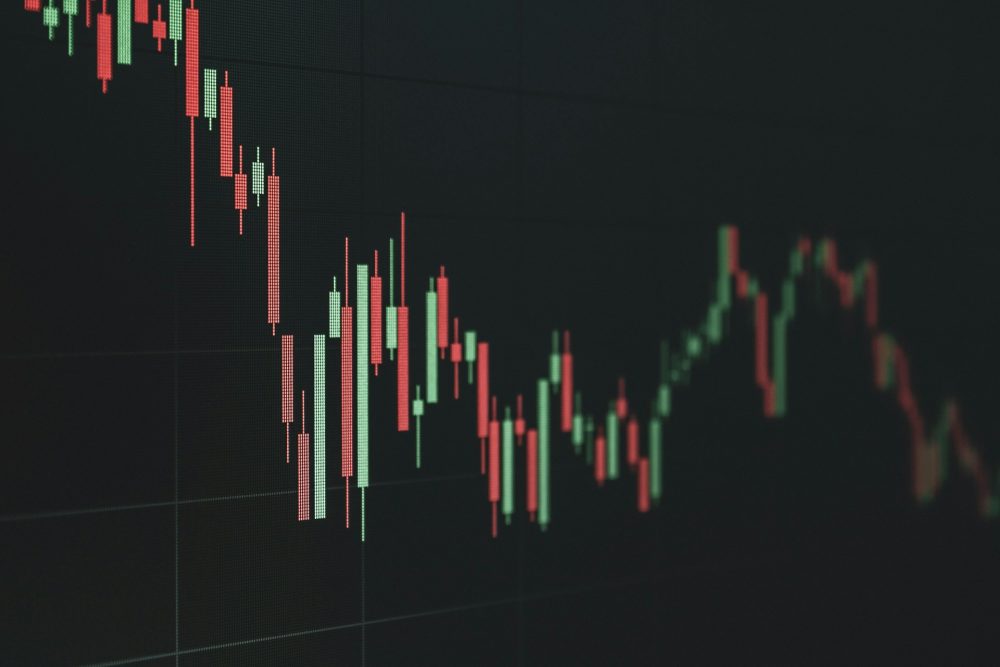Business
TopRanked.io Weekly Affiliate Digest: What’s Hot in Affiliate Marketing [HealthTrader Affiliate Network]
Some people are so afraid of dying that they dedicate their entire lives to not dying. This week, we’re gonna look at some of these people and show you a way to make some serious affiliate bucks off of them. And, of course, we wouldn’t neglect to arm you with a good affiliate program to help you monetize, so keep your eyes peeled for our Health Trader Affiliate Network review. It’s a cracker.

Quick Disclosure: We’re about to tell you the HealthTrader affiliate network is pretty great. And we really mean it. Just know that if you click on a HealthTrader affiliate network link, we may earn a small commission. Your choice.
Sometimes, you run into something that has no logical answer.
I mean, how do you explain this.

So many questions, so few answers.
And what about this?

Lucky for us, when it comes to affiliate marketing, most questions have logical answers.
If you want proof, then watch me answer the following question:
“What’s a really great affiliate program offering a range of high-converting products and great commissions?”
TopRanked.io Partner Program of the Week — Health Trader Affiliate Network
If you want high-converting products and great commissions, then look no further than our top affiliate program for this week: the Health Trader Affiliate Network.
Here’s everything you need to know about the Health Trader Affiliate Network.

Health Trader Affiliate Network — The Products
The Health Trader Affiliate Network, as you probably guessed, is all about health. And yeah, I know you’re probably waiting for something a little more specific than that. But, if I was any more specific, I’d be selling the Health Trader Affiliate Network short.
Seriously. I mean, can you name one affiliate program (aside from the Health Trader Affiliate Network) where you can sell everything from beauty products and supplements through to medical consultations and prescription meds?
Tick, tock. The clocks ticking.
If your answer was “not many”, then you’re absolutely right — there really ain’t many affiliate programs that can match the Health Trader Affiliate Network for sheer breadth and depth of product.
Now, before moving on, I could get more specific about some of the Health Trader Affiliate Network products. But, I have a better idea.
I’m gonna get specific in the next section — the Health Trader Affiliate Network commissions.
You’ll see why in a second.

Health Trader Affiliate Network — The Commissions
Alright, there’s a reason why I saved a detailed look at the Health Trader Affiliate Network products for this section — the exact commissions the Health Trader Affiliate Network will pay you depend on what product you sell.
Now, as a general rule, the plan mechanics never really change with the Health Trader Affiliate Network — expect to be working on rev share for pretty much everything on the Health Trader Affiliate Network.
What does change, however, is the rev share percentage the Health Trader Affiliate Network will pay you.
Here’s a full, detailed list of everything on the Health Trader Affiliate Network with up-to-date rev share rates as of today:
- Immune Support (General Health, Nutra, Dietary Supplements) – Revshare Percentage: 40%
- 121doc (Pharmacy, Medical Consultation) – Revshare Percentage: 13% – 17%
- Liver Support Plus (Dietary Supplements, General Health) – Revshare Percentage: 40%
- Lutenol (Dietary Supplements, Vision Support) – Revshare Percentage: 45%
- Projoint Plus (Dietary Supplements, Joint Care) – Revshare Percentage: 45%
- euroClinix (Pharmacy, Medical Consultation) – Revshare Percentage: 13% – 17%
- meds4all (Pharmacy, Medical Consultation) – Revshare Percentage: 13% – 17%
- Folexin (Hair Growth, Dietary Supplements) – Revshare Percentage: 45%
- Max Gains (Sport Nutrition, Weight Loss) – Revshare Percentage: 30%
- Colon Detox Plus (Detox, Gut Health) – Revshare Percentage: 45%
- Valotin (Hair Growth, Dietary Supplements) – Revshare Percentage: 40%
- Kidney Support (General Health, Nutra) – Revshare Percentage: 40%
- Turmeric Curcumin Plus (Superfoods, Nutra) – Revshare Percentage: 40%
- Vitall (Beauty, Medical Consultation) – Revshare Percentage: 15%
- Cilexin (Men’s Health, Sexual Health) – Revshare Percentage: 45%
- Keto Trim (Weight Loss) – Revshare Percentage: 40%
- Thyroid Support (General Health) – Revshare Percentage: 40%
- Garcinia Cambogia Plus (Weight Loss, Nutra) – Revshare Percentage: 45%
- Foligray (Hair Growth) – Revshare Percentage: 45%
- Sleep Support Plus (Anxiety & Stress, Sleep Support) – Revshare Percentage: 50%
- Prostate Plus (Men’s Health) – Revshare Percentage: 40%
- Stress Support (Anxiety & Stress) – Revshare Percentage: 50%
- Probiotic Support (Detox, Gut Health) – Revshare Percentage: 40%
- CLA 2000 (Sport Nutrition, Weight Loss) – Revshare Percentage: 50%
- Urinary Tract Support (Women’s Health, Nutra) – Revshare Percentage: 40%
- Turmeric & Ginger (Superfoods, Nutra) – Revshare Percentage: 40%
- Raspberry Ketone Plus (Weight Loss, Superfoods) – Revshare Percentage: 40%
- Slendarol (Weight Loss, Nutra) – Revshare Percentage: 40%
- OnlineClinic (Pharmacy, Medical Consultation) – Revshare Percentage: 13% – 17%
- Blood Pressure Support (General Health) – Revshare Percentage: 40%
- Blood Sugar Support (General Health, Nutra) – Revshare Percentage: 40%
- Green Coffee Plus (Weight Loss, Superfoods) – Revshare Percentage: 45%
- Apple Cider Vinegar Pure (Weight Loss, Superfoods) – Revshare Percentage: 50%
- HealthExpress (Pharmacy, Medical Consultation) – Revshare Percentage: 3%
- Digestive Enzymes (General Health, Nutra) – Revshare Percentage: 40%
- Nootrogen (Nootropics, Focus) – Revshare Percentage: 45%
- Krill Oil Plus (Weight Loss, Superfoods) – Revshare Percentage: 40%
- Immune Complex (General Health, Nutra) – Revshare Percentage: 40%
- Collagen Complex (Beauty, Joint Care) – Revshare Percentage: 40%
- Lung Support (General Health) – Revshare Percentage: 40%
Now, as with any program, the Health Trader Affiliate Network could change up some of these rates in the future. But, this isn’t the first time we’ve looked at the Health Trader Affiliate Network, so we feel pretty confident in saying they’re more or less representative of what you should expect over the long term.
And, for those who can’t be bothered parsing the list above, the Health Trader Affiliate Network commissions top out at 50%, with most around the 40% mark, and a handful below this.

Health Trader Affiliate Network — Next Steps
You’re gonna be hard-pressed to find a better affiliate program in the health niche than the Health Trader Affiliate Network, both in terms of commissions and the sheer breadth of products on offer.
But, if you think you can do better, then why not take a look through our list of the best Health and Wellness affiliate programs over on TopRanked.io? (You’ll also find our full Health Trader Affiliate Network review over there, too.)
Or, if you know what’s best for you and want to get started promoting the Health Trader Affiliate Network right now, then head here to sign up.

Affiliate News Takeaways — Cashing in on Thanatophobia
If you happened to be reading our New Year resolution affiliate program edition, then you might remember we did a deep dive on Lieutenant Commander Data from Star Trek.

Okay. So maybe we didn’t. But we did do a deep dive on the guy on the right, who, let’s be honest, pretty much looks the same.
His name is Bryan Johnson, and he looks like he’s got a real case of Thanatophobia (a fear of dying). He’s also developed into something of an anti-aging guru.
For those who missed it the first time we looked at him, Bryan’s story basically goes like this:
- Founded Braintree.
- Sold Braintree to PayPal for a bunch of money.
- Decided to use some of that money ($2 million a year) to turn himself into a lab rat.
- He now tests out anything “anti-aging”, from supplements to weird fringe therapies.
- Based on his experience, he created a “blueprint” that anyone can follow.
- He publishes a bunch of YouTube videos about his anti-aging journey.
Now, if you believe his claims, a lot of this has been pretty successful. He’s apparently turned back the clock on again, and dramatically slowed down the rate at which his body will continue to age at.
He’s also done okay in building a little bit of an audience for himsel if the growing interest in his YouTube channel is any indication. Here’s his subscriber count to date.

Now, as for why I’m revisiting this story again, that’s because this story caught my attention this week.
It’s a story that acts as a bit of a follow-up to that whole “Blue Zones” thing — something that most people with a Netflix subscription are familiar with by now.
For those who missed it, the basic gist of the Blue Zone thing was:
- Some guy catches on to the fact that people live exceptionally long lives in some places.
- These places are called the “Blue Zones”
- The guy then goes travelling to said Blue Zones to ask people their secrets to longevity.
- He made a documentary along the way that got pretty popular on Netflix.
And as for the article that cropped up this week, that was a bit of a Blue Zones debunk.
Basically, according to new research, people in these supposed Blue Zones don’t actually live any longer than the rest of us. Instead, they just “appear” to be living longer.
How so?
Well, there are a few answers here. They include everything from WWII bombings to good old welfare fraud.

Now, if WWII bombings and welfare fraud seem like strange bedfellows, that’s because they kinda are. But — and this is important — they all have one key commonality.
They can both lead to inaccurate records. Specifically, birth and death records.
Here’s an example from the researcher’s own mouth: “The best predictor of where 100-year-olds are within Okinawa [Japan] is places that have had their cities bombed by the Americans, burning the birth records. So the more bombing you have, the more 100 year-olds you have.”
And as for the welfare fraud correlation, that one basically boiled down to people keeping Grandma in the freezer long after she died and not declaring her death.

Well, okay. Maybe they weren’t literally keeping Grandma in the freezer. But, what they were actually doing with the body is besides the point.
The real point is that they weren’t declaring Grandma’s death. Thus, Grandma’s pension checks would keep rolling in.
Dito for Grandpa.
And just like that, a bunch of so-called Blue Zones were shown to be not so blue after all. Their secret to longevity was little more than a bunch of inaccurate records.
Now, as for what all of this has to do with Bryan Johnson, the answer is not much aside from the anti-aging connection. But that connection was enough to prompt me to check in on how Bryan was going.
Or, to be more exact, to see how the whole movement around this particular flavor of anti-aging was going.
And that’s where things start to look interesting.
For instance, there was another curiosity we looked at last time we spoke about Bryan. That was the Rejuvenation Olympics — an online leaderboard where anti-aging enthusiasts compete to see who can age the slowest.
At the time, that was a really niche corner of this whole anti-aging thing. Barely anyone knew about it.
Since then, it actually looks like it’s starting to grow into something a little more significant — 3-4 months ago, Rejuvenation Olympics started getting a bit more than the odd random blip on the Google Trends radar. Now, it’s showing something that might actually start turning into a bit more of a sustained trend.

Now, that’s still a maybe. But, we can see similar “number go up” metrics if we cross-check this across other sources. For example, it’s rising fast on SimilarWeb.

And, if things keep going this way, it’s the kind of trend that could start to snowball.
To see what I mean here, take a look at this story that appeared in the NY Post last week. It’s about a granny named Amy Hardison who’s apparently beating Bryan at his own game.
Now, on closer inspection, the reporting itself is pretty shoddy. Bryan is beating her by a long shot. But, the point here has nothing to do with who’s fighting aging the best.
The real point is that each story like this brings more and more attention to the whole movement. Thus more people enter and start sharing their results. And thus the snowball continues to grow.
As for how much it will continue to grow, who knows? What I do know, however, is that something that started the year as a bit of a left-of-field odity that wasn’t getting much attention now has 2325 people on its leaderboard, as of today.
And, before you say “But 2325 people isn’t that much at web scale”, consider that you gotta pay to play (minimum of $1000 a year).

That’s because you have to get “tested” for a range of biomarkers that are supposed to quantify how much you’re aging. And, as you can imagine, those tests aren’t free. (Oh, and yes, there is an affiliate program to sell those tests — it’s on the Impact affiliate marketplace if you’re interested).
Oh, and also, if you still think those 2k+ people competing in the Rejuvenation Olympics isn’t much, think about the “market size” these people alone represent. I mean, they’re each paying at least $1k a year just to “compete”. And that’s the least of their expenses.
Take the granny profiled by the NY Post, for example. Her real claim to fame — and the real story in the article — is that she’s a bit of a tight ass when it comes to rejuvenation. And yet, even with her bare minimum tight ass approach, she’s still spending a minimum of $100 a month just on supplements. And you can bet most of the other “anti-aging athletes” are spending much, much more. (Byran spends $2 million a year.)
You can also bet that the “leaderboard” only represents the tip of the iceberg. I mean, I’m sure most people’s interest in combatting aging has little to do with some silly internet competition (especially given the non-negligible cost of entry), and a lot more to do with, you know… just living a bit longer.

I’m also pretty sure that at least some of Bryan’s million-plus subscribers on YouTube aren’t just there to gawk at a Star Trek look-alike.
Takeaway
Hopefully by now you’ve sorta figured out the affiliate opportunities here for yourself (there was even one mentioned above, in case you missed it).
But, for those of you who are stuck for ideas, all you really need to do is take a look at what these so-called anti-aging athletes are doing. Then you figure out what products you need to do what they’re doing. And then, you sell as many of those products as you can find affiliate programs for.
Now, as for how you get these products in front of people who are actually interested in them, here’s an example of what one guy I found on Twitter is doing.
He posts long threads about the regimen used by different anti-aging athletes.
And then, he mixes in threads about products that you often see cropping up in these regimens, like this one:
By the way, that bike’s also got an affiliate program… no surprises there.
And don’t think you’re limited to just selling bikes and Rejuvenation Olympics tests, either.
There are even some fairly non-obvious affiliate products you can sell in this niche, like doctors’ appointments. After all, what good is following some anti-aging protocol if it’s not mixed with regular checkups and other preventative medicine interventions?

Oh, and PS, that market is expected to grow at a CAGR of 9.8% throughout the rest of this decade.
Just saying.

And then, of course, there are always the really obvious products like supplements — the sort of stuff that even tight-ass granny spends at least $100 a month on.
Long story short, there’s a ton of stuff to sell into this market which is only just getting started.
Also, just in case you missed our Health Trader Affiliate Network review, here’s a quick FYI — if you were wondering how you can sell medical consultations as an affiliate, Health Trader Affiliate Network is the answer. (They even have supplements in the program, too.)

Closing Thought
The last time we wrote about this whole anti-aging thing, it was in the lead-up to New Year’s Eve. You know, that time when everyone starts setting goals under the guise of “New Year’s resolutions”.
And, I bet if I checked in with 99% of those resolutions now, most of them would have failed.

And so, I thought it might be time to do a “why do we fail at goals” thing.
So I went looking for opinions, and found this — confessions of a recovering midwit.
Apparently, being a “midwit” is a blocker when it comes to achieving your goals.
And just in case you missed the memo… err, I mean, the meme… this is it, as applied to starting a business.

Now, what’s this got to do with achieving your goals?
Well, the post is kinda long, so I’m probably going to skip something important. But here’s the gist:
- The “midwit” mindset tries to overcomplicate things.
- The midwit mindset is attracted to these overcomplications because it thinks it found a clever hack.
- But all this complication just leads you further away from your goal, distracting you from what’s really important.
- Thus, you have the double trap of overcomplicating things as you chase hacks that aren’t nearly as effective as you think they are.
And here’s the midwit example given in the post.

So, what’s the moral of the story?
Simple.
If you’re not achieving something, it could be because you’re overcomplicating it.
And while we’re on the topic of not overcomplicating things, remember how I was saying there were a ton of products to promote in the anti-aging niche?
Well, don’t go looking too hard. Your best bet is to pick something simple and obvious and just start promoting that.
“What’s simple and obvious?”, I hear you ask.
Easy. Just get started with the affiliate program I’ve already handed to you this week — Health Trader Affiliate Network.

__
(Featured image by SevenStorm JUHASZIMRUS via Pexels)
DISCLAIMER: This article was written by a third party contributor and does not reflect the opinion of Born2Invest, its management, staff or its associates. Please review our disclaimer for more information.
This article may include forward-looking statements. These forward-looking statements generally are identified by the words “believe,” “project,” “estimate,” “become,” “plan,” “will,” and similar expressions. These forward-looking statements involve known and unknown risks as well as uncertainties, including those discussed in the following cautionary statements and elsewhere in this article and on this site. Although the Company may believe that its expectations are based on reasonable assumptions, the actual results that the Company may achieve may differ materially from any forward-looking statements, which reflect the opinions of the management of the Company only as of the date hereof. Additionally, please make sure to read these important disclosures.

-

 Markets2 weeks ago
Markets2 weeks agoGold’s Historic Surge and Sudden Crash Signal Volatility, Not Defeat
-

 Cannabis4 days ago
Cannabis4 days agoWhen a Cutting Becomes a Cannabis Plant: Court Clarifies Germany’s Three-Plant Rule
-

 Africa2 weeks ago
Africa2 weeks agoIvory Coast Development Plan 2026–2030: Investment, Growth, and Strategic Reforms
-

 Africa7 hours ago
Africa7 hours agoMASI Surge Exposes Market Blind Spot: The SAMIR Freeze and Hidden Risks












